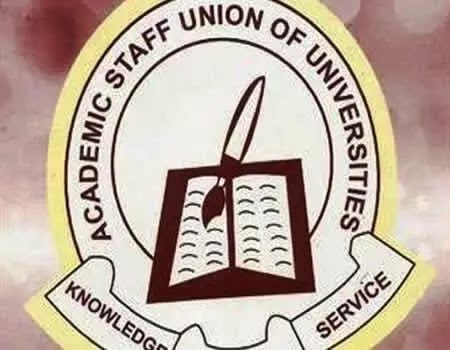A memo to ASUU and FG negotiators (I)
Wale Babalakin, the chairman of the Federal Government (FG) negotiating team on the ASUU strike, says ASUU wants funds but does not want to be held accountable. While this is true and is consistent with what I have been arguing for years, is this not self-indictment on the part of Mr. Babalakin? Anyway, as the FG and ASUU reportedly get ready for more negotiations, Mr. Babalakin would do well to heed the following reflections. The FG has been making promises to ASUU and has been acquiescing to ASUU’s demands over the years, but implementation has been uneven to say the least. You can fault ASUU for repeatedly extracting promises and deals from the FG that are either unimplementable or can only be implemented if there is a fundamental or revolutionary change in our polity, an elusive prospect at this time. But the fault lies with both sides for engaging in a unidirectional negotiation.
That’s a bad strategy in negotiation — shoddily crafting an agreement that both sides know will not be implemented. I studied negotiation as part of my graduate certificate course in conflict management. One thing I learnt is that, if you insist on having your way in a negotiation without giving any concessions in return simply because you have the leverage, which ASUU has in its ability to shut all public universities down, you’d be the loser in the long term despite your short-term domination of the negotiation. This is because the unhappy negotiating partner you browbeat into conceding to your demands has no incentive to follow through and therefore will not implement the agreement or will only do so half-heartedly.
That has been ASUU’s problem for years, and it never learns from experience. Negotiation is or should be a give-and-take exercise. A good negotiation is one in which each party leaves the table with something, a concession. A good outcome is one that leaves both parties happy but not completely satisfied because they both secured only some of their demands and priorities. This is what makes implementation possible. A bad negotiation is one in which one party gets all the concession and the other party leaves the table with nothing. Another bad negotiation scenario is one in which one party comes to the table without doing its homework and therefore shows up without an agenda, that is, without any demands — only hoping to minimize the concession it has to make to the other party.
This last category covers ASUU-FG negotiations of the last decade and half. The FG usually comes to the table to minimize its exposure and concessions but not to make demands of ASUU in exchange for making these concessions and promises. That is the problem.
It is not ASUU’s fault that the FG always goes to these negotiations without a plan to hold ASUU accountable, without demanding anything in return for the promises it makes to ASUU. In this, Babalakin is to blame for what he is lamenting, not ASUU. It is true that ASUU can make life politically difficult for the FG with its leverage of shutting down the public university system. However, once a shutdown occurs, ASUU members are as exposed and vulnerable to public criticism as is the FG, so the leverage disappears in the moment of negotiation.
It’s possible that the FG negotiating team’s failure to engage in a two-way, give-and-take negotiation is strategic on the part of Babalakin’s team, since ASUU-FG negotiations are a farce anyway, and the FG never intends to implement the overwrought agreements it routinely signs. The negotiations are merely face-saving charades for both sides, and the resulting agreements are largely aspirational bullet points.
It is also possible that the failure to articulate any demands or conditions for ASUU to consider and possibly accept is sheer incompetence on the part of Babalakin and his team of FG negotiators. No matter, now that Babalakin seems to realize his error, one hopes that the looming round of negotiations will be done in good faith and that the FG will insist on a two-way, mutually rewarding process.
For starters, let Babalakin and his team demand the following in exchange for making concessions to ASUU: (i) The formulation by each university, but following a broad outline supplied by the NUC, of a student bill of rights. This binding document would outline and protect the rights of students as stakeholders in the university, give them a voice in their own education and in their relationship with lecturers and supervisors, and finally, appoint a student-centred ombudsman council to shield students from harassment, abuse, and victimization. (ii) A mechanism for enforcing minimum class attendance for lecturers. We insist on attendance for students; we should do the same for their lecturers. Lecturers should not be allowed, as is currently the case, to come to class only a few times in a semester and then show up to administer an examination at the end. (iii) A system that makes rigorous, multilevel independent interviews mandatory for recruitment into the academic ranks of public universities and toughens promotion criteria. (iv) A system to delegitimize and bar predatory and incestuous publications from being used for promotion purposes. (v) A system of merit pay in addition to or as a replacement for the current system of fixed salary structures. (vi) The implementation of student teaching evaluation in all public universities in the country.
Some of these measures have to be implemented through the regulator, NUC, but ASUU have to agree not to stand in the way, hence the need to include them in agreements that give or promise ASUU some of the goodies they’re demanding.
